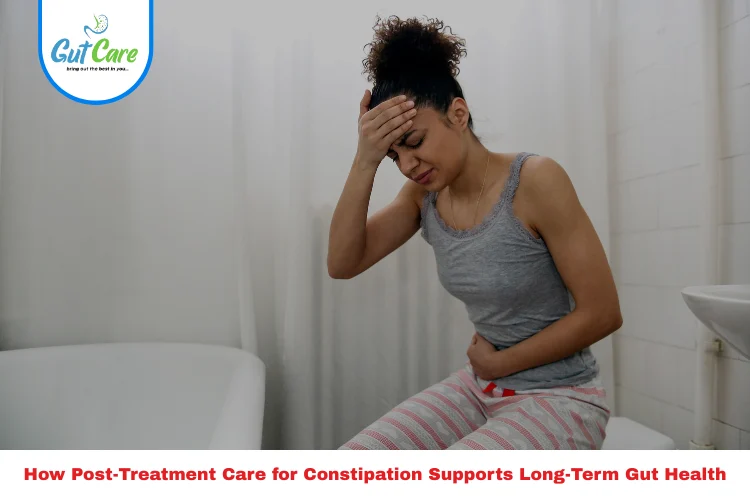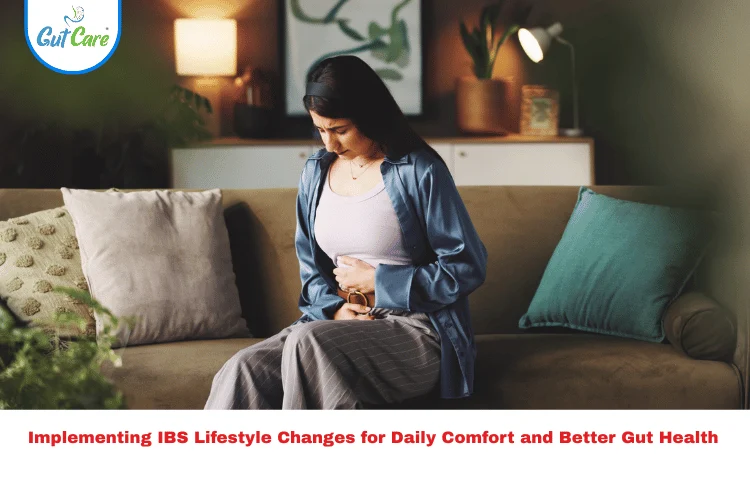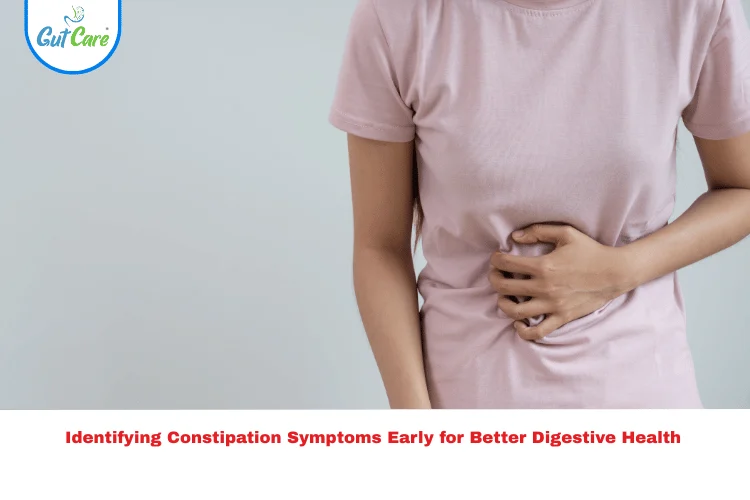Why Post-Treatment Care For Constipation Is the Key to Long-Term Relief
Post-treatment care for constipation, the next most vital thing is what you do after the period. Though it’s good that your systems have had some relief, they can come back if you don’t support your digestion properly. This is a crucial phase which many people skip and that is post-treatment care and lifestyle adjustments that are done to prevent recurrences from happening.
There is a detailed explanation here of how you, by only implementing some of the educated changes, can not only move your bowel but also be sure the improvement will not be just temporary.
Reset Your Diet: Fiber Isn’t Optional
During the treatment, your gut is in need of the right foods. Fiber, for one, is the most important nutrient in socializing regularity issues. Safe and easy ways to get more fiber are the answer.
Consider the list of fiber-rich foods to combine in your meals:
- Whole grains such as oats, quinoa, and brown rice
- Leafy greens, broccoli, and carrots
- Fruits with skin—like apples, pears, or berries
- Legumes like chickpeas and lentils
Slow down: increase fiber little by little for the next several days to discourage any feeling of being bloated. Set a goal of 25–35 grams per day to keep your stomach as healthy as it can be.
Hydrate Like It’s Your Gut’s Job
Drink enough water to support the intake of soluble fiber. Deprived of this, the fiber can actually have a dehydrating effect on the stools. Properly rehydrating is a key factor in gentle and steady recovery from a tough treatment phase.
Here you have some good pieces of advice on the quickest changes centered on hydration:
- Consume at least 8- to 10-ounce glasses of water daily
- Sip on herbal teas or warm lemon water daily
- Take away from the diet the following dehydrating drinks: they are soda and alcohol
By being well-hydrated, the insides of your intestine remain oiled and the waste goes through with ease.
Keep Your Gut Moving with Physical Activity
Constipation is the most common cause of inactivity. Regular physical activity enhances the process of digestion and keeps the digestive tract provoked.
You have a dazzling array of exercises that you can do post-treatment care for constipation. The list is given below:
- Brisk walking of 20-30 minutes daily
- Yoga with the concentration on the midriff
- If you sit for extended periods, make sure to stand or stretch every hour
Implementing exercise in your daily routine not only pumps blood but it also assists the bowels to move in a more regular way without extra forcing of your body.
Build a Bathroom Routine You Can Rely On
Following a planned regularity to have a rest to bowel is one of the most efficient strategies for protection against constipation. Regularity helps your organism to recognize when it needs to be emptied on time.
Do you want to know what is the most effective way to set up your defecating habit? Here you can find answers.
- Opt for a definite time and stick to it by visiting the toilet at the same time each day, that is preferably after having meals.
- Respond quickly to the urge instead of keeping it in.
- To make it easier for yourself, have a stool that you could use to raise your knees.
Giving your body the time to go through the defecation process with no sudden movements can help avoid distress and prevent the return of constipation.
Master Mindful Eating: Slow Down, Chew More
Are you aware that the way you eat is also affecting your digestive system? Actually, the only thing left for you to do after having a fast or distracted lunch is to wait for the food to be absorbed in your body atom by atom, and then might as well cook the food again. In other words, the problem is that your stomach takes a bullet for you, to think of it, you are lucky.
Read the following mindful eating recommendations:
- Each bite should be thoroughly chewed, at least 20 to 30 times.
- Turn off electronics like televisions and mobiles to eat more mindfully
- Split the entire day into many smaller periods and have light foods at each of them rather than eating
Overcome Your Stress by the Time it Puts You in Shackles!
The bond between stress and gut processing is something that is inseparable. Even after therapy, stress can hinder the process by contracting gut muscles and disrupting bowel signals.
Do these less-stress-undercutting activities:
- Engage in deep breathing or meditation before bed
- Take a short walk after meals
- Stay away from devices and change your sleep habits
Because stress causes less inflammation, the smooth functioning of the gut becomes predominantly evident.
Using Laxatives Wisely—Only if Necessary
It may be a lot more comfortable to go back to the use of over-the-counter laxatives, but overdoing them can have devastating effects on the natural rhythm of the gut. Solely to be used in the case of acute symptoms and close follow-up from a healthcare professional, the doctor of course, is the condition that deems laxative use necessary.
There are actually more secure options, such as:
- Psyllium husk that not only adds fiber content to one’s diet but also is a dietetic and mild supplement
- Magnesium citrate that is only recommended once in a while under the doctor’s supervision
- Herbal teas that are specifically indicated for constipation and are also beneficial unlike senna or peppermint, the latter two being of more alkaline nature (not to be used daily)
If you need an expert’s opinion and would like to discuss your health and recovery with them safely, you can visit a good care provider like Gut Care Clinics.
Conclusion: Small Changes, Maximum Positive Effects
You can forgot going through a full lifestyle transformation in order to prevent constipation—a few simple changes to your nutrition, fluids, physical activity, and thought processes are all that you will need. Post-treatment care for constipation is not about achieving perfection in everything. This is about being consistent in a few vital things.
The gut needs harmony, the good it gets from food, and the respect we give it. Take these as your life principles.
FAQs: Understanding Post-Treatment Care For Constipation
1. How long does it take to see results from lifestyle changes?
Most people experience improved bowel movements within 1 to 2 weeks if consistent.
2. Should I stop taking fiber supplements after recovery?
Gradually replace them with whole food sources but talk to your doctor before stopping completely.
3. What foods are known to slow digestion?
Highly processed foods, excessive dairy, fried foods, and low-fiber snacks can trigger constipation.
4. Is constipation normal after certain medications or surgery?
Yes, especially after painkillers or anesthesia. Stay ahead of symptoms with proper hydration and movement.
5. What if my constipation keeps coming back despite lifestyle changes?
That’s a sign to consult a gastroenterologist. Chronic constipation may need a tailored medical plan.




